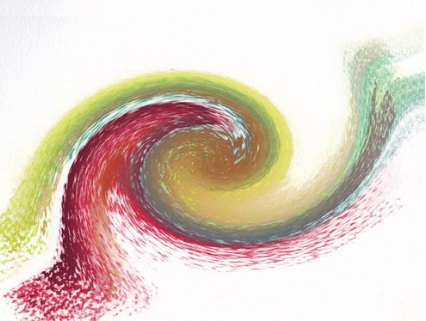Every coach listens; the difference lies in the ways we each focus on what we’re listening to and how (self-) aware we each are when we’re listening to our client communicate with us.
All in Practitioner Experience
Live where you fear to live: Embracing our own challenges as coaches by Jon Dunsmore (Guest)
During my postgraduate diploma studies in psychological coaching with the Metanoia Institute, I followed a strict study regime – devouring coaching books in my spare time. One such book was Much Ado About Coaching, published by the contributors to this website.
Working as a Consultant Coach can speed up results! By Maria Biquet
Most of us are fed up with instructions, ready-made solutions and all the literature about “the X steps to success” that somebody else has tried (or just imagined) and presents them to us all as the Guru in the matter of self- development and success in life and business.
Coaching myself as part of my career transition: Entering, and then sustaining, a transitional space by Caroline-Lucie Ulbrich
Understanding how I am developing my coaching practice has enabled me to become more aware and sensitive towards assessing how I apply what I do in coaching on myself, first, before advising others. I think it is important to “walk-the-talk” to demonstrate that a coaching approach is effective. It also helps with putting oneself
WHERE CORPORATE CULTURE LIVES The Competitive Advantage of Empathy by Dr. Lucille Maddalena
Every day corporate leaders announce plans that will revolutionize their organization, move them forward and provide the environment to successfully take on more challenging work. The process can be likened to a business owner at the turn-of-the 20th century writing his hopes and dreams for the company on
My story of Coaching: Finding the way to myself by Maria Biquet (Guest)
When I was about 25 years old I started asking myself why I am What I am. I didn’t know what I was and even more I didn’t know who I was. This still remains a big question for most people…
Rediscovering authenticity with the help of role biography by Caroline-Lucie Ulbrich
I extensively used role biography as a self-coaching technique during a two-year Executive Master’s program in organizational psychology. I reflected on the roles I had assumed throughout my life in several case papers and as part of my thesis.
“Rules of Thumb: My Own Coaching Heuristics” by Dr. Lilian Abrams, Ph.D., MBA, MCC
I have realized over my time as an executive coach (and prior to that, as an OD consultant) that I have assembled my own personal treasure box of what I call “heuristics”. These are the pithy sayings, models, and go-to concepts that I have found useful in describing my meaning, in terms of providing a contribution to my client in that moment in our coaching conversation. (Understanding the nature of that prompting urge is, I suspect, a topic for another blog-piece!)
Rhythm - an unrecognised and untapped dimension of coaching: seen through a perspective born of speed and risk by Simon Darnton
It was around five thirty in the evening. A warm, sunny August evening. Delightful. The course was now almost deserted as I descended the start ramp on foot with Finn, my 9 year old son.
Soaring to a wider attention span again – freeing up strongly focussed leaders by Laurent Terseur
I often work with strongly focused leaders, who operate in intense, highly competitive contexts and within very powerful organisational cultures. They are strong achievers, hold high standards and are usually incredibly skilled when it comes to observing, analysing, processing and coming up with powerful ideas.
To what extent do we consider biases in our practice as coaches? by Lynne Hindmarch
In this blog-article I will discuss areas of cognitive bias that I have come across consistently in my coaching practice, my experience of transference, and the implications for coaching.
Defining my transitional space as part of my career transition by Caroline-Lucie Ulbrich (guest)
Career transition is a hot topic these days. People talk about it, engage in it, and fail at it. Only few seem to be aware of the breadth of coaching which could help them master this – after all, it is a long-term endeavor. Particularly coaching that facilitates access to one’s “intuitive” knowledge is
Coaching from the paradigm of systematic correspondence: the heart and the mind by Simon Darnton
In the second part of this series I described how, to get a sense of this Chinese (and South East Asian) way of thinking, I had to learn a way to park my intellect. Not only that, I had to drop this idea I held about patterns appearing to be consistent and coherent - in my normal reasoned sense anyway.
The Accidental Coach OR "How I stumbled across coaching and discovered I was one" By Epimetheus (guest)
Service - helping others. There, I’ve said it. After much reflection and rummaging in my memory I’d sum up my approach to coaching with that one word. Jeremy Bentham wrote, “Create all the happiness you are able to create. Remove all the misery you are able to remove.” And coaching is a powerful way of doing that.
Pursuing Professionalism and Rigor in Coaching; The usefulness of peer coaching for personal and professional development by Yvonne Thackray and Larissa Conte
Coaching as we understand it today is part of an evolutionary process in elevating human potential. As societies continue to realize that each individual has greater potential to live beyond their limitations, coaching has tapped into that growing awareness while filling a gap left by the decline of lifelong structured developmental experiences like guilds, formal mentoring, and initiations.
The Three Gateways to a Powerful Coaching Engagement: getting unstuck, growing confidence and uncovering possibility by Robbie Swale (guest)
The more and more I have coached people, the more I have started to see patterns emerge in that work. As I reflected on my work for this article, I realised I have seen three of these patterns strengthen into three of the primary effects of powerful coaching.
Building Companies’ Sustainability Stories: A Role for Coaching by Geoffrey Ahern
Mobilising the company’s stakeholders on behalf of full sustainability entails the development of their stories about the Anthropocene. The Anthropocene is our era in which we humans have an increasingly significant influence on the Earth.
Building my practice around self mentoring – especially when having had to self-mentor myself through some exciting challenges by Marsha Carr (guest)
When I first wrote about self-mentoring five years ago, I was just beginning an interesting journey that chose me and has been leading the way ever since. I am the developer of the practice of self-mentoring. I own the registered trademark so by business standards, it belongs to me. It belongs to me because I lived it – I used self-mentoring to survive. I now run a successful start-up that focuses on the






















